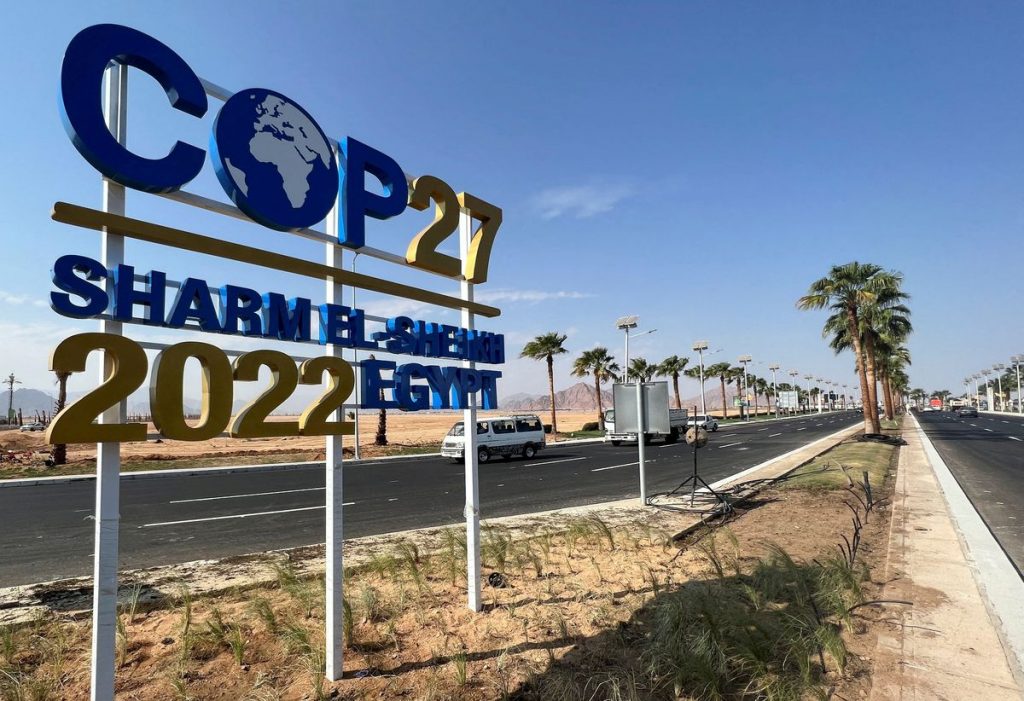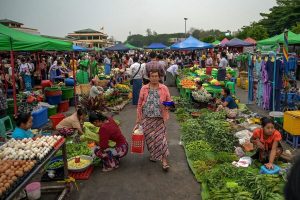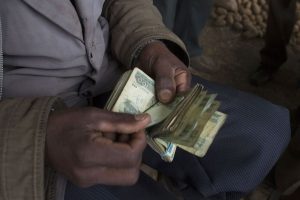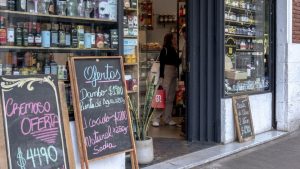Frontier Markets Weekly, November 6th 2022

Welcome to the latest edition of Frontier Markets News. As always, I would love to hear from you at dan@frontiermarkets.co with news ideas, feedback and anything else you find interesting.
If you’d like to receive this newsletter in your inbox every weekend, sign up at FrontierMarkets.co. Please also share this link with any friends or colleagues you think would enjoy it.
Africa
Egypt cracks down ahead of climate summit. The COP27 climate conference begins in Sharm el-Sheikh on Sunday with over 70 people who had planned protests to coincide with the event imprisoned.
Amid the arrests, Egypt has sought to reframe this year’s climate summit as an opportunity to put Africa on the mainstage, with a priority to increase green financing for low- and middle-income countries, according to the Council on Foreign Relations.

The arrests are part of a growing challenge for repressive states hosting globally-scaled events. Authoritarian states seek the recognition and market opportunities that hosting a large-scale event confers, but do so at the risk of putting a spotlight on frequently poor human rights conditions.
The treatment of migrant workers in Qatar, for example, has prompted calls to boycott this year’s World Cup, and Saudi Arabia took criticism for its detention of dissenters before 2020’s G20 summit. Political dissent has been curbed in Egypt since 2013, when President Abdel Fattah Al-Sisi took control in a coup. —Noah Berman
Guinea’s junta to prosecute former president Condé. The ruling military junta in Guineaplans to prosecute over 180 former officials and ministers, including former president Alpha Condé. In a letter announcing the prosecutions, the junta cited a litany of corruption charges to be filed against the former politician and his allies.
The military overthrew Condé, who was the country’s first freely elected president, in September 2021. The bank accounts of the officials to be prosecuted have already been frozen, according to The Africa Report.

The charges are the second set to be brought against Condé, and many former officials have already been detained. In May, the former president was indicted on charges of murder, torture, kidnapping and rape. Political repression in Guinea is notoriously brutal, according to Freedom House, and has worsened under the junta.
Military leader Colonel Mamady Doumbouya has announced that he will restore civilian rule within two years of January 2023. —Noah Berman
Another truce in Ethiopia. The Ethiopian government and the Tigray People’s Liberation Front this week signed a peace deal bringing a halt to their two-year civil war. The truce followed 10 days of peace talks brokered by the African Union in South Africa.
The deal requires Tigrayan rebels to fully disarm within 30 days and gives control of the Tigrayan capital city of Mekelle over to the federal government. The Ethiopian government agreed to allow humanitarian aid into the region of Tigray and to restore basic services, including electricity, water, telecommunications and banking.

Persuading Tigrayan forces who have witnessed human rights abuses by the Ethiopian government and its supporting Eritrean forces to voluntarily disarm will be difficult for Tigrayan leadership, the New York Times reports. The deal reached this week does not include Eritrea. International observers have said that the permanent cessation of hostilities is a “critical first step,” but monitoring and implementing the ingredients of the deal will be key to preventing the country from toppling back into war. —Noah Berman
US sanctions arms dealers after devastating Mogadishu attack. The US Treasury Department announced sanctions on Tuesday against nine suspected weapons traffickers after two car bombs exploded within minutes of each other in front of the education ministry in the Somalian capital of Mogadishu. Al-Shabaab, the al-Qaeda linked terrorist group that is based out of the East African country, claimed responsibility for the attack, which killed more than 100 people.

The sanctions mark the first US designation against ISIS-Somalia, Fox Business reports. The bombings were the deadliest in Mogadishu in five years, The Guardian reports, when a truck bomb positioned in the same location killed over 500.
Al-Shabaab has been seeking to overthrow the Somalian government for 15 years, but ramped up attacks recently, France24 reports. The country has been in political disarray since 1991, when military president Siad Barre’s government collapsed. —Noah Berman
Nigeria’s naira demonetization causes chaotic scramble for dollars. The naira has declined sharply against the dollar, becoming one of the world’s worst performing currencies after the central bank announced a surprise redesign and demonetization of the country’s current bank notes, Bloomberg’s Emele Onu and Mustapha Adamu report. The gap between the official and unofficial exchange rates reached 88%, its highest level ever, as traders rush to dollars before the 200, 500, and 1,000 naira notes are retired in six weeks.
The government argues that currency redesign is necessary to prevent cash hoarding and strengthen the financial sector while curbing inflation, which has reached the highest level in 17 years. However, the immediate effect was chaos as traders rushed to buy dollars—widely used in Nigeria’s economy —at previously unseen levels, forcing many to pool resources to afford the US currency.

In response to the naira’s rapid decline against the dollar, the IMF warned that the short period to change notes could “create huge operational pressure on banks.”
Both President Muhammadu Buhari and the central bank defended the move, yet demonetization has proven a mistake before, with India’s similar 2016 move leading to a frantic scramble for cash and slowed economic growth. As Abuja considers debt restructuring in the face of higher import costs, ballooning interest payments and falling oil output, another hit to economic activity could not come at a worse time. —Ken Stibler
Asia
Volatility in Vietnam. Central bankers in Vietnam met with their commercial counterparts this week, as credit conditions continue to tighten amid higher interest rates.
As other frontier economies, Vietnam has raised interest rates to try to support its currency and rein in inflation. The focus of this week’s three emergency meetings with more than a dozen commercial banks was increasing apprehension over liquidity in the system, Reuters reports.

Vietnam’s stock market plunged on Monday after a corruption probe against the prominent real estate tycoon Truong My Lan became public. Investors sold off financial stocks and rushed to withdraw money from the country’s fifth-largest commercial bank, Saigon Commercial Bank, raising concerns about a run on the bank. Lan was believed to be a major stakeholder in SCB, Bloomberg reports.
The benchmark VN index—the world’s second worst performing primary index in October—fell over 2% on Monday to its lowest level since January 2021, and continued to fall throughout the week. —Noah Berman
Sri Lanka at risk of missing IMF deadline over China delay. Sri Lanka will likely miss a December deadline to secure $2.9 billion in IMF funding, Hindustan Times reports. The agreement requires bilateral debt reconciliation assurances with creditor nations, and China has yet to initiate talks with Colombo.
If Sri Lanka misses the December deadline, it might have to wait until March 2023 to be eligible to receive the funding. Sri Lanka has begun talks with fellow creditors India and Japan, but has yet to speak with China, which celebrated its 20th party congress last week. China owns 52% of Sri Lanka’s bilateral debt, and 20% of its overall debt, Nikkei Asia reports.

If it misses the December deadline, Colombo will require $850 million in bridge funding to continue to pay for imports, including food, fuel and medicine, according to Hindustan Times. The nation is attempting to recover from an economic crisis that bred shortages of basic goods and sparked a political overhaul that deposed the long-ruling Rajapaksa family. —Noah Berman
Khan shot in suspected assassination attempt. Former prime minister of Pakistan Imran Khan was shot on Thursday during his protest march to Islamabad.
Khan was in an open-topped truck in Punjab Province, the country’s most populous, before shots rang out, CNN reports. Khan was struck in the leg, and at least one person was killed.
A suspect was detained on Thursday with a pistol and two empty magazines. Police released a video of his confession, but it was unclear if the man, who in the video says “only Imran Khan was my target,” made his statements under duress, Deutsche Welle reports.

Since being ousted as the country’s leader in March, Khan has seen his popularity grow as Pakistan’s economy continues to suffer under replacement prime minister Shehbaz Sharif. Khan, who said on Friday he would resume the march, has accused his political rivals of being part of an American-led conspiracy against him. —Noah Berman
Middle East
Iran unrest grows as mourners mark deaths of protest victims. Several mourning ceremonies for Iranians who died in recent protests snowballed into large demonstrations on Thursday, adding fresh momentum to a monthslong antigovernment movement that has swept across the Islamic Republic, Aresu Eqbali and Benoit Faucon report in the WSJ.

Security forces have responded with lethal force against the protests, which were ignited by the death on Sept. 16 of 22-year-old Mahsa Amini in the custody of Iran’s morality police, who had detained her for allegedly violating the country’s strict Islamic dress code.
More than 200 people have died since the protests began and hundreds more injured, rights groups say. Now, memorials—traditionally held 40 days after passing, a date of remembrance in Islamic tradition—for some of those people who died in the unrest are quickly escalating into protests in a new challenge to the establishment.
Europe
Poland begins building fence to prevent Russia from pushing migrants into Europe. Polish army engineers began erecting a razor-wire fence across the country’s 130-mile border with Russia, Karolina Jeznach and Drew Hinshaw repot in the Journal. Poland joins others in Europe’s east constructing such barriers, in what Poland’s government described as a bid to prevent Moscow from encouraging asylum seekers to cross overland into the EU.

The fence will run the entire length of Poland’s border with the Russian exclave of Kaliningrad, Defense Minister Mariusz Blaszczak told reporters. The construction began, he said, in response to concerns that Moscow would seek to encourage asylum seekers to fly into the exclave and enter the EU via the Polish border.
The exclave’s international airport will soon be accepting regular commercial flights from the Middle East, Blaszczak said. Last month, the chief executive of the exclave’s Khrabrovo Airport, Alexander Korytnyi, told Russia’s Interfax news agency that it aims to negotiate direct flights to the United Arab Emirates and Qatar.
Latin America
Caracas comes in from the cold as Latin America softens approach to Maduro. Colombian President Gustavo Petro, a former left-wing guerrilla, this week traveled to Caracas to discuss bilateral trade, environmental-protection efforts and the security of their shared border. The meeting—the first between the country’s leaders in six years—follows the reopening of the border between the two countries and loosening of regional restrictions against Venezuela, the WSJ’s Kejal Vyes reports.

Petro’s move to restore trade relations in September has led to only $2 million in formal commerce since. The disappointing figures reflect the dominance of criminal groups that operate an informal empire along the porous 1,300-mile border between the two countries. The Petro-Maduro meeting, though, could be the first of many as the new wave of leftist leaders begins to revisit their countries’ Venezuela policies.
Following the meeting, Xiomara Castro’s left-wing government in Honduras restored relations with Venezuela that had been severed since 2019. Brazil’s newly elected Luiz Inácio Lula da Silva also looks likely to follow Colombia’s lead. —Ken Stibler
Interview
In an interview with FMN’s Noah Berman, Terrance Drew, the prime minister of St. Kitts and Nevis, details some of the challenges his government—and those of other small island nations—are facing.
NB: How deep is the current crisis facing developing economies?
TD: We are at a very challenging point for developing economies. Here in the Caribbean we are dealing with higher gas prices, fuel costs, higher electricity costs. Food prices have gone up [but] disposable income has gone down.
We are looking at capping oil prices and fuel at the pump, limiting the rise in electricity costs and [ensuring] critical food items are affordable for our people. But of course these come at a cost that is affecting the government’s fiscal position.
We have also looked at ways in which we can cut taxes and looked at keeping corporate tax to a manageable level so that there can be a better business environment.

NB: That seems like a paradoxical challenge.
TD: Yes. This is why we in the Caribbean are not discussing GDP as a means of assessing how well an economy is doing, but the MVI, Multi Vulnerability Index, which gives a truer picture.
We are very susceptible to shocks and we have to almost rebuild our infrastructure to make sure that we can deal with climate change, rising sea levels, the prospect of stronger storms and stronger hurricanes. We are in the process right now of creating a resilient country in that sense and that is expensive.
NB: Regarding climate change, should big economies shoulder more of the load when it comes to programs to protect more climate-exposed economies?
TD: Yes. We actually contribute very little of the world’s emissions, yet we are at mercy of nature and…climate change. We are paying a big price with stronger hurricanes, stronger storms, rising sea levels. It’s affecting our coast line, the seas, and the fish that are available for food. With stronger storms, this is an existential threat. We can have one major hurricane that can hit us so hard and set us back for decades.
Larger countries produce more emissions, so they cause more effects of climate change, and therefore it would be fair if they are asked to bear more of the burden in dealing with the effects of climate change.
What we’re reading
Ghana: Akufo-Addo’s ‘no bond haircut’ promise met with skepticism. (The Africa Report)
Details in Ethiopia’s peace deal reveal clear winners and losers. (NYT)
Uganda: Pipeline politics pits jobs and profits against homes and land. (The Africa Report)
Kenya deploys hundreds to regional force in eastern DRC. (AP)
South Africa warns $8.5b climate package risks fueling debt burden. (FT)
Surge in migrant crossings brings Tunisia’s crisis to Europe. (Bloomberg)
Russian proxies seize the advantage in Africa’s Islamist insurgencies. (FT)
What China’s new lending rules will mean for African states. (The Africa Report)
Indonesia considers OPEC-style cartel for battery metals. (FT)
Myanmar: Investigation reveals aviation fuel supply chain linked to war crimes. (Amnesty International)
Kyrgyzstan and Uzbekistan foreign ministers sign water, border agreements. (The Diplomat)
North Korea ‘sending artillery to Russia for war in Ukraine.’ (WSJ)
How impoverished North Korea finances testing spree. (AP)
Saudi Arabia opens economic zone in push for foreign investment. (FT)
Iran’s currency hits new low against the dollar amid unrest. (AP)
German foreign ministry calls on citizens to leave Iran. (DW)
Grain deal shines light on Turkish leader’s ties to Putin. (FT)
Egypt and the IMF: Will Sisi take the economy out of the military’s hands? (FT)
Russia ‘recruiting US-trained Afghan commandos.’ (AP)
Restrictive EU visa policy risks further Western Balkans disillusionment. (BalkanInsight)
How China continues to lose friends in Central and Eastern Europe. (Nikkei)
Poland begins building wall to prevent Russia from pushing migrants into Europe. (WSJ)
UN votes overwhelmingly to condemn US embargo of Cuba. (AP)
Colombia congress passes Petro tax hikes on oil and the rich. (Bloomberg)
Peru’s post-pandemic economic recovery faster than that elsewhere. (MercoPress)
Boric launches bill to change Chile’s pension system. (MercoPress)
Espionage charges filed against former Argentine president. (MercoPress)
Lula victory in Brazil revives EU trade hopes for Latin America. (Politico)




